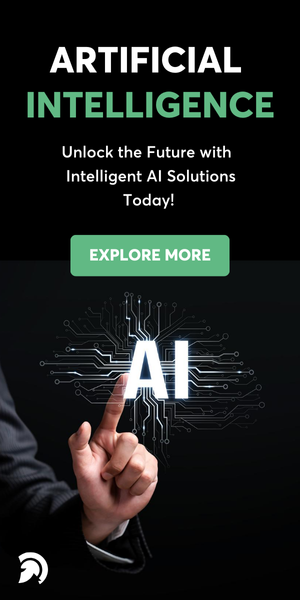Quality Assurance (QA) is an essential component of the software development lifecycle, ensuring that applications are bug-free, reliable, and function as intended. However, as the software development process accelerates, traditional QA methods are struggling to keep up. AI-powered solutions are quickly stepping in, transforming the QA landscape and taking automation to the next level. In this blog, we’ll explore how AI is redefining quality assurance and why businesses should embrace this shift to stay competitive.
Why Traditional QA is No Longer Enough
Traditional QA processes, especially manual and scripted testing, come with significant challenges. They are time-consuming, error-prone, and difficult to scale, particularly in fast-paced agile environments. As development cycles shorten and software complexity increases, these limitations become more evident. To keep up, organizations are turning to AI development services that enable intelligent automation, improve test coverage, and accelerate QA workflows.
Inefficiencies of Manual and Scripted Testing
Manual testing, while effective in some cases, requires a considerable amount of time and human effort. This results in delays in releasing software updates or new features.
Scalability Challenges in Agile Development
Agile methodologies demand continuous iteration, which traditional QA struggles to keep up with. Testers often have to revise scripts, retest, and deal with evolving requirements, slowing down the process.
Human Error and Time-Intensive Regression Cycles
Human testers are prone to errors, especially when dealing with complex systems or repetitive tasks. Regression testing, which ensures that new code does not break existing features, can become overwhelming and inefficient over time.
How AI is Transforming Quality Assurance
AI is bringing much-needed improvements to QA testing. With its ability to automate tasks, analyze vast amounts of data, and learn from past tests, AI can take over many of the tedious tasks that traditionally required human testers, allowing them to focus on more strategic activities.
AI-Powered Test Automation
AI enables test automation to run faster and more accurately. It removes the need for manual test script execution, allowing for more frequent and comprehensive testing cycles.
Self-Healing Test Scripts
AI can automatically detect changes in an application’s code and update test scripts accordingly. This self-healing capability eliminates the need for constant manual updates, reducing maintenance efforts.
Intelligent Bug Detection
AI models can detect anomalies, bugs, and performance issues in the software that manual testing might miss. It continuously analyzes data to improve the accuracy of its bug detection capabilities.
Better Identification of Edge Cases and Anomalies
Unlike human testers, AI can simulate complex scenarios and spot edge cases that are rare but could cause critical issues if left unchecked.
Adaptive Machine Learning Models
AI systems are not static. They learn and adapt based on previous test results, improving their coverage and accuracy over time.
Real-World Applications of AI in QA Testing
AI has already found its place in various areas of QA testing, from performance testing to security checks. Below are some key real-world applications that demonstrate the power of AI in transforming the QA process.
Performance, Load, and Security Testing
Many leading companies are using AI to automate and optimize performance and load testing. AI-powered tools help identify performance bottlenecks, simulate user traffic, and check the application’s behavior under stress, all with minimal human input.
AI in Visual Testing and UI Regression Detection
AI systems can analyze UI elements to ensure visual consistency across different devices and screen resolutions. These tools are especially helpful in detecting UI regression, where minor code changes can impact the user interface.
Natural Language Test Generation and Intelligent Test Prioritization
AI allows users to generate test cases from natural language descriptions, making the testing process more intuitive. Additionally, AI prioritizes tests based on risk analysis and the likelihood of failure, saving time and effort.
Benefits for Businesses and QA Teams
AI-powered quality assurance offers numerous benefits for both businesses and QA teams. These advantages make AI-driven QA an essential tool for modern software development.
Improved Test Accuracy and Speed
AI reduces human errors and accelerates the testing process, ensuring better quality while speeding up the release cycles.
Reduced Costs and Quicker Time-to-Market
By automating manual tasks, AI reduces the need for labor-intensive testing, ultimately lowering costs and improving time-to-market for new features.
Better User Experience and Product Reliability
Faster, more thorough testing leads to higher-quality software. This translates into better product reliability and a more satisfying user experience.
Top Automation Tools
As AI continues to play an increasingly important role in quality assurance, several powerful tools and platforms have emerged to streamline AI-driven testing. Below are some of the most popular AI testing frameworks and platforms that can help organizations accelerate their testing processes.
Selenium
- Overview: Selenium is one of the most widely used open-source automation tools for web application testing. It provides a rich framework for automating tests across different browsers.
- Use Cases: Web application testing, regression testing, cross-browser testing.
- Features: Multi-browser support, script compatibility in different programming languages, integration with CI/CD pipelines.
Appium
- Overview: Appium is an open-source mobile automation framework that works across native, hybrid, and mobile web applications.
- Use Cases: Mobile app testing, mobile browser testing.
- Features: Cross-platform mobile testing, supports Android and iOS, integration with other testing frameworks.
Applitools
- Overview: Applitools is an AI-driven automated testing platform that supports web, mobile, and desktop testing.
- Use Cases: Functional testing, regression testing, performance testing.
- Features: Test recording, keyword-driven testing, integrates with various CI/CD tools.
Top AI Platforms
IBM Watson
- Overview: IBM Watson is a powerful AI platform that leverages natural language processing and machine learning to improve testing processes.
- Use Cases: AI-based bug detection, predictive test analysis, intelligent test automation.
- Features: Advanced NLP capabilities, data-driven insights, scalability for large applications.
Microsoft Azure AI
- Overview: Azure AI provides a suite of AI tools and services, including capabilities for automated testing and predictive analysis.
- Use Cases: Test automation, performance testing, intelligent analytics.
- Features: Machine learning, integration with Azure DevOps, cloud-based scalability.
Google Cloud AI
- Overview: Google Cloud AI offers various machine learning tools that can be integrated with testing frameworks to automate and optimize the QA process.
- Use Cases: Automated test generation, performance analysis, real-time anomaly detection.
- Features: Pre-trained models, data processing tools, scalable infrastructure.
Emerging AI Startup Ideas in QA
The growing demand for AI-driven QA solutions has created exciting opportunities for startups. Innovators can leverage AI to create specialized QA platforms that cater to various niches in the market.
- AI-Powered QA Platforms: Startups can develop AI-powered QA platforms that automate end-to-end testing, making the process more efficient and scalable for businesses.
- Niche Markets for AI in QA: There are many niches within the QA space where AI can be applied, including low-code/no-code AI QA tools, mobile app AI QA tools, and SaaS QA bots that are ideal for agile teams.
- AI Solutions for Agile Teams: SaaS platforms that offer AI-powered QA bots can be a game-changer for agile teams, providing them with the tools they need to automate and prioritize tests without the need for extensive coding.
Choosing the Right AI App Development Company
Selecting the right AI app development company is crucial for successfully implementing AI-driven QA. When evaluating potential partners, businesses should consider:
Domain Knowledge, Scalability, and Integration Capabilities
Ensure that the company has experience in QA and can integrate AI solutions into your existing systems. They should offer scalable solutions that grow with your business.
Customizable AI Solutions
The best AI app development companies provide tailored, customizable AI solutions that meet the specific needs of your QA processes, ensuring the right fit for your business.
Evolution of QA Through AI
The future of QA is undeniably AI-powered, and businesses that embrace this evolution will be better positioned to lead in a tech-driven landscape. With increasing demands for speed, accuracy, and scalability, traditional testing methods can no longer keep pace. By leveraging AI development services and adopting AI-powered QA solutions, companies can streamline quality assurance, reduce release cycles, and enhance software reliability. As a trusted custom AI development company, EvinceDev helps businesses implement intelligent testing frameworks tailored to their specific needs.
Explore how our software quality assurance services can drive innovation in your development process. Contact us today for a FREE consultation and discover how AI can transform your QA strategy.




